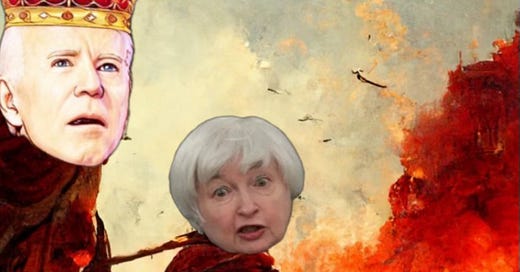Economic Realities Unveiled: Navigating Separate Ways on the Narratives of a Soft Landing
Inflation, Bank earnings and Early Real Estate data
As we dive into the economic data of 2024, things haven't improved, perhaps prompting thoughts of Journey's "Separate Ways." The second week brings eye-opening revelations, painting a gloomier pictur…
Keep reading with a 7-day free trial
Subscribe to The Coastal Journal to keep reading this post and get 7 days of free access to the full post archives.



